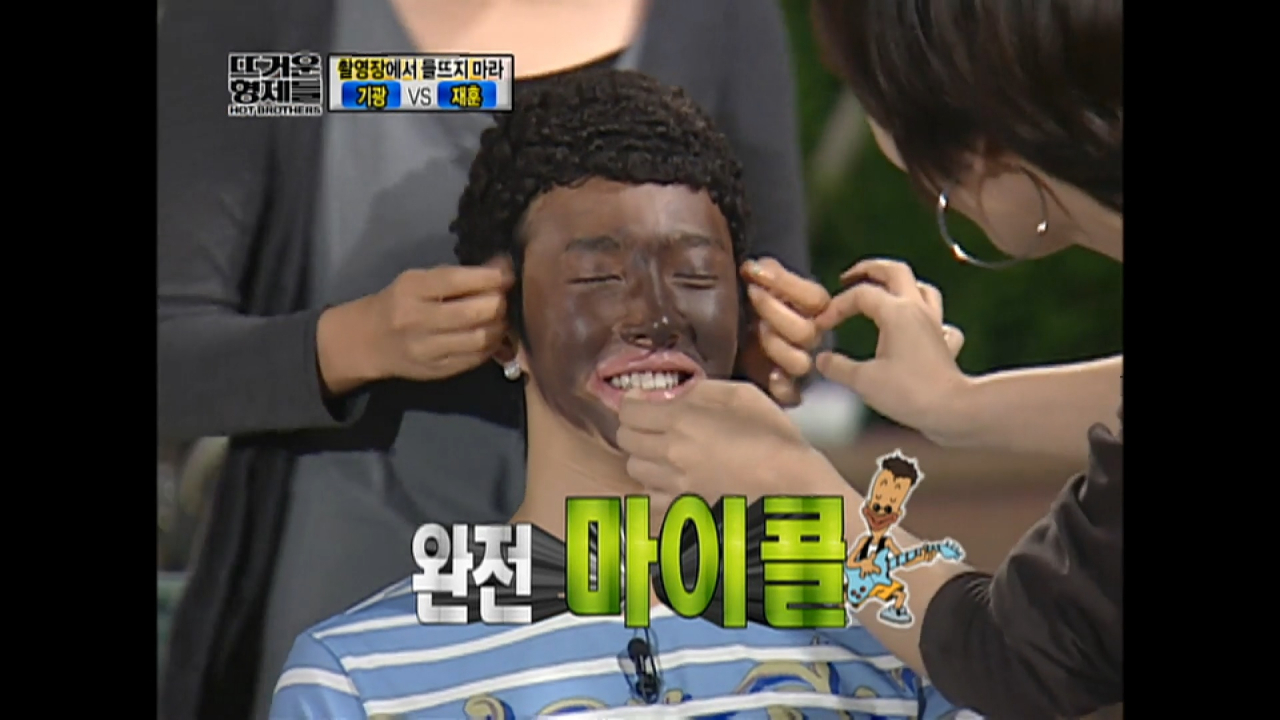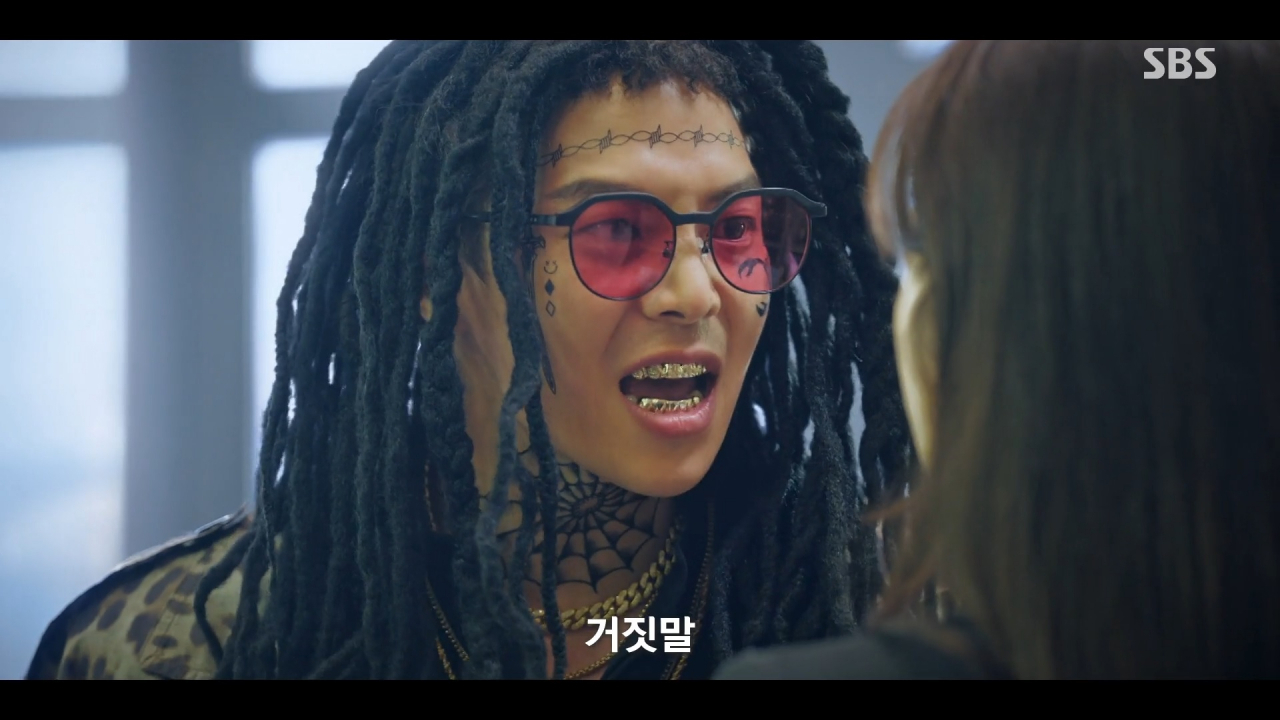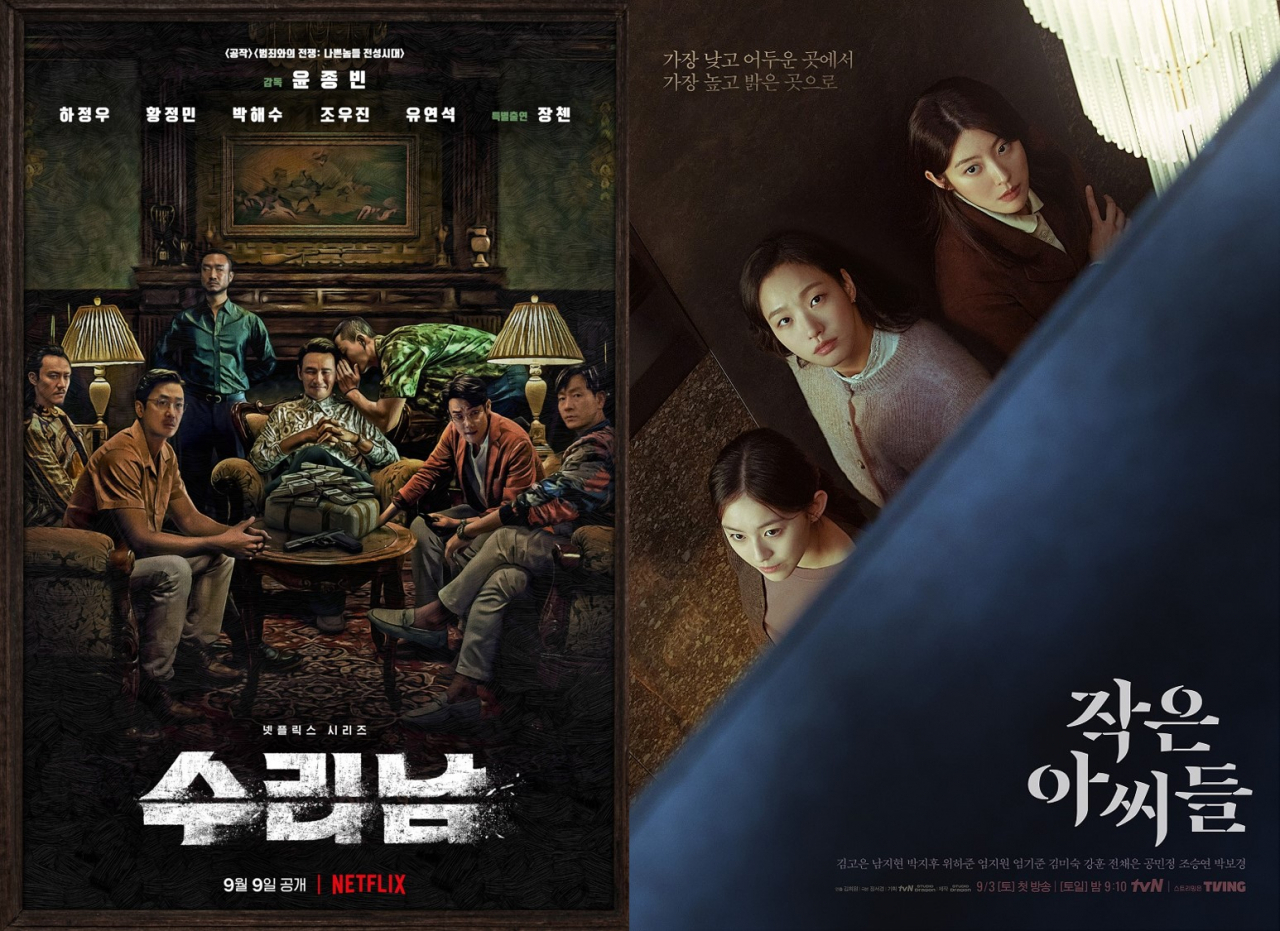 |
(123rf) |
When Korean dramas first became popular outside of Korea in the early 2000s -- “Winter Sonata” (2002) and MBC’s “Jewel in the Palace” (2003) are prime examples -- the viewership was mostly Asian.
It was at this time that the term hallyu, or Korean Wave, began to be used to describe the popularity of Korean entertainment overseas.
While Korean films, such as “Oldboy” (2003), “Train to Busan” (2016) and “Parasite” (2019), have received international recognition since the early 2000s, it was not until the arrival of Netflix hits such as “Squid Game” last year that Korean dramas caught the attention of a wider global audience.
While the series won foreign fans with their storylines and production values, entertainment shows are stuck with a problem that will be familiar to longtime viewers of Korean TV: glaring cultural insensitivity.
Humor at what price?
 |
Screenshot shows K-pop boy band Highlight’s Lee Gi-kwang – then a member of boy band B2ST – disguised as a cartoon character named Michael in MBC's "Hot Brothers" in 2010. (MBC) |
The Korean entertainment industry does not have much history of taking cultural diversity into account, and has often offended international viewers with its portrayal of foreign cultures and history.
Local comedians have often tried to elicit laughs by mimicking foreigners’ Korean accents and appearances.
In one notorious episode MBC variety show “Hot Brothers” (2010-2011) came under fire as for showing Lee Gi-kwang -- then a member of boy band Beast -- in the guise of a character named Michael from a local cartoon series “Baby-Saurus Dooly." The racist connotations of the blackface involved was hammered home when Lee ate watermelon on the show.
MBC got into hot water again when its “World Changing Quiz Show,” featured two female comedians performing in blackface in 2012.
The video was removed and the staff apologized, explaining that the comedians were imitating the Michael character and it was not their intention to disparage people of another race.
In 2021, SBS issued an official apology after presenting misleading information about Indonesia in its sports drama “Racket Boys,” which portrayed the country as incompetent at hosting a sports event and discriminating against foreign athletes.
Actor Park Eun-seok, 38, also issued a formal apology for the racist portrayal of his character Alex Lee in SBS’ hit drama “The Penthouse 3: War in Life.”
Park said the character was not intended to mock or disrespect Black people, but said he was responsible for the offense caused by the character’s appearance.
 |
Actor Park Eun-seok plays Alex Lee in SBS’ hit drama “The Penthouse 3: War in Life.” (SBS) |
Culture critic Hwang Jin-mi said that as Korean content is now being enjoyed by a much wider audience, the issue of cultural sensitivity has become more important than ever.
“Aside from the global popularity of Korean content, our country itself is headed toward becoming a multicultural society as well. These issues need to be addressed carefully,” Hwang told The Korea Herald.
“It should be noted that many cases of cultural appropriation and discrimination involve African or Southeast Asian countries. Many Koreans seem to share a false perception that they don’t need to pay close attention to these countries which have smaller economies,” the critic said, adding that serious measures need to be taken against this kind of discrimination.
Problems continue
 |
Poster images of "Narco Saints" (left) and "Little Women" (Netflix, tvN) |
In September, the government of Suriname said it was considering taking legal action against the producers of the recent Netflix series “Narco-Saints,” criticizing the series for perpetuating an outdated image of the country as a "narco state."
Yoon Jong-bin, who directed “Narco-Saints,” told local reporters in an interview that he did not feel the need to create a fictional country because the story is based on true events. Netflix’s South Korean office has remained silent on the issue.
Meanwhile, cable channel tvN’s mystery thriller “Little Women” was removed from Netflix' service in Vietnam after Vietnam’s Department of Broadcasting, Television and Electronic Information said that the series presented misleading information about the country and the Vietnam War.
The series mentions Vietnam while the lead character explains about a mysterious orchid, known as the Ghost of Vietnam. “Little Women” also presents a story about a Korean soldier, who took part in a secret operation during the Vietnam War in 1967, killing 100 Viet Cong on his mission.
Studio Dragon, the production company behind “Little Women,” responded to the Vietnamese government’s protest by pledging to take social and cultural sensitivity into account and pay more attention to them in future productions.
Can promises be kept?
“We recognize the situation with cultural appropriation and diversity issues. As more Korean content is enjoyed by both local and global audiences, we try to make more efforts to prevent past mistakes from recurring,” an official at a local production company told The Korea Herald on Nov. 3.
These assurances may sound familiar. Previous pledges to do better have not been kept. But the official claimed that there was a definite change in the air.
“In the past, a monitoring team reviewed the series. Today, individual staff members feel a greater sense of responsibility and pay more attention to the issues alongside the monitoring team. The hope is to present a project that can be enjoyed by many people without feeling offended,” she added.
Public broadcaster KBS said that it strictly follows a broadcast production guideline to prevent discrimination against social minorities, including expats and multinational families.
“We try to avoid using any expression that discriminates other countries, ethnic groups or races. Non-Koreans’ inarticulate use of Korean and their actions should not be seen portrayed as something to be looked at,” the KBS official said.
Netflix Korea said that various content-related teams work together to prevent any cultural appropriation and discrimination.
Jang Han-up, a French literature professor at Ewha Womans University and the head of Ewha Multicultural Institute, said careful approaches need to taken in the production stage.
Pointing out that Korea has strong traits of a monoethnic country, Jang explained that content on other cultures is accepted without much questioning because the viewers have little experience to make independent judgments.
“This gives great power to the media and the creators need to be more cautious,” Jang told The Korea Herald.
According to the professor, many multicultural families in Buan, North Jeolla Province, are not raising their children to be bilingual. The Korean fathers don’t agree with the couples’ children learning the mothers’ language when the mothers are not from Western countries, he explained.
“Diversity is still not being respected enough in Korea. This may create countless problems for Korea in becoming a truly multicultural society,” the professor said.
Jang explained that Korean content is enjoyed not only by overseas foreign viewers, but also Korea’s youngsters with multicultural backgrounds. He believed that unscripted shows and dramas need to make utmost effort to offer appropriate, unbiased presentations.
While some are concerned that the strict monitoring may limit the content creators’ imagination, social discrimination cannot be talked about in the same context with freedom of expression and creativity, according to Won Yong-jin, a Sogang University professor.
“Issues, which pose a clear and imminent danger, can face criminal charges. Though the problematic expressions in drama series and entertainment shows may not be legally challenged, they are not free from public criticism. I think the staff of ‘Narco Saints’ felt that they were on the line,” Won said.
“Content creators are no longer regarded merely as merchants, selling their content to others. They are considered a key communicator in a society. Hiding behind an excuse named ‘ignorance’ is irresponsible. They need to be awake to be ‘real artists,’” the professor added.







![[Weekender] Korea's traditional sauce culture gains global recognition](http://res.heraldm.com/phpwas/restmb_idxmake.php?idx=644&simg=/content/image/2024/11/21/20241121050153_0.jpg)